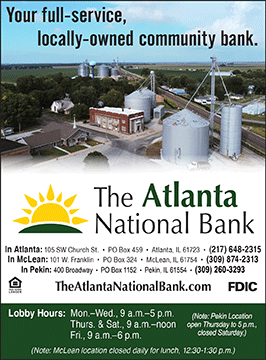Trump to put import taxes on pharmaceutical drugs, kitchen cabinets,
furniture and heavy trucks
[September 26, 2025] By
JOSH BOAK
WASHINGTON (AP) — President Donald Trump said Thursday that he will put
import taxes of 100% on pharmaceutical drugs, 50% on kitchen cabinets
and bathroom vanities, 30% on upholstered furniture and 25% on heavy
trucks starting on Oct. 1.
The posts on his social media site showed that Trump's devotion to
tariffs did not end with the trade frameworks and import taxes that were
launched in August, a reflection of the president's confidence that
taxes will help to reduce the government's budget deficit while
increasing domestic manufacturing.
While Trump did not provide a legal justification for the tariffs, he
appeared to stretch the bounds of his role as commander-in-chief by
stating on Truth Social that the taxes on imported kitchen cabinets and
sofas were needed “for National Security and other reasons.”
Under the Trade Expansion Act of 1962, the administration launched a
Section 232 investigation in April about the impacts on national
security from pharmaceutical drug and truck imports. The Commerce
Department launched a 232 investigation into timber and lumber in March,
though it's unclear whether the furniture tariffs stem from that.
The tariffs are another dose of uncertainty for the U.S. economy with a
solid stock market but a weakening outlook for jobs and elevated
inflation. These new taxes on imports could pass through to consumers in
the form of higher prices and dampen hiring, a process that economic
data suggests is already underway.
“We have begun to see goods prices showing through into higher
inflation,” Federal Reserve Chair Jerome Powell warned in a recent news
conference, adding that higher costs for goods account for “most” or
potentially “all” of the increase in inflation levels this year.

The president has pressured Powell to resign, arguing that the Fed
should cut its benchmark interest rates more aggressively because
inflation is no longer a concern. Fed officials have stayed cautious on
rate cuts because of the uncertainty created by tariffs.
Trump said on Truth Social that the pharmaceutical tariffs would not
apply to companies that are building manufacturing plants in the United
States, which he defined as either “breaking ground” or being “under
construction.” It was unclear how the tariffs would apply to companies
that already have factories in the U.S.
In 2024, America imported nearly $233 billion in pharmaceutical and
medicinal products, according to the Census Bureau. The prospect of
prices doubling for some medicines could send shock waves to voters as
health care expenses, as well as the costs of Medicare and Medicaid,
potentially increase.
The pharmaceutical drug announcement was shocking as Trump has
previously suggested that tariffs would be phased in over time so that
companies had time to build factories and relocate production. On CNBC
in August, Trump said he would start by charging a “small tariff” on
pharmaceuticals and raise the rate over a year or more to 150% and even
250%.
According to the White House, the threat of tariffs earlier this year
contributed to many major pharmaceutical companies, including Johnson &
Johnson, AstraZeneca, Roche, Bristol Myers Squibb and Eli Lilly, among
others, to announce investments in U.S. production.
[to top of second column] |

Container ship Leyla Kalkavan crosses the Bosphorus strait, in
Istanbul, Wednesday, Sept. 24, 2025. (AP Photo/Francisco Seco)
 Pascal Chan, vice president for
strategic policy and supply chains at the Canadian Chamber of
Commerce, warned that the tariffs could harm Americans' health with
“immediate price hikes, strained insurance systems, hospital
shortages, and the real risk of patients rationing or foregoing
essential medicines.”
The new tariffs on cabinetry could further increase the costs for
homebuilders at a time when many people seeking to buy a house feel
priced out by the mix of housing shortages and high mortgage rates.
The National Association of Realtors on Thursday said there were
signs of price pressures easing as sales listings increased 11.7% in
August from a year ago, but the median price for an existing home
was $422,600.
Trump said that foreign-made heavy trucks and parts are hurting
domestic producers that need to be defended.
“Large Truck Company Manufacturers, such as Peterbilt, Kenworth,
Freightliner, Mack Trucks, and others, will be protected from the
onslaught of outside interruptions,” Trump posted.
Trump has long maintained that tariffs are the key to forcing
companies to invest more in domestic factories. He has dismissed
fears that importers would simply pass along much of the cost of the
taxes to consumers and businesses in the form of higher prices.
His broader country-by-country tariffs relied on declaring an
economic emergency based on a 1977 law, a drastic tax hike that two
federal courts said exceeded Trump's authority as president. The
Supreme Court is set to hear the case in November.
The president continues to claim that inflation is no longer a
challenge for the U.S. economy, despite evidence to the contrary.
The consumer price index has increased 2.9% over the past 12 months,
up from an annual pace of 2.3% in April, when Trump first launched a
sweeping set of import taxes.
Nor is there evidence that the tariffs are creating factory jobs or
more construction of manufacturing facilities. Since April, the
Bureau of Labor Statistics has reported that manufacturers cut
42,000 jobs and builders have downsized by 8,000.

“There’s no inflation,” Trump told reporters Thursday. “We’re having
unbelievable success.”
Still, Trump also acknowledged that his tariffs against China had
hurt American farmers, who lost out on sales of soybeans. The
president separately promised on Thursday to divert tariff revenues
to the farmers hurt by the conflict, just as he did during his first
term in 2018 and 2019 when his tariffs led to retaliation against
the agricultural sector.
All contents © copyright 2025 Associated Press. All rights reserved |